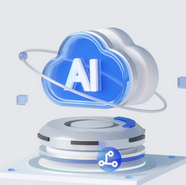人工智能英语文章1000
人工智能
2024-05-12 19:30
1114
联系人:
联系方式:
阅读提示:本文共计约2826个文字,预计阅读时间需要大约7分钟,由本站编辑整理创作于2023年11月04日08时06分03秒。
Title: The Evolution of Artificial Intelligence in Computer Science
Introduction
Artificial intelligence (AI) has become an integral part of our daily lives, with applications ranging from virtual assistants to advanced medical diagnosis. This rapid development is the result of decades of research and innovation in the field of computer science. In this article, we will explore the evolution of AI in computer science, highlighting key milestones and future prospects.
Early Developments
The concept of artificial intelligence can be traced back to the work of Alan Turing in the 1950s. Turing proposed a test, now known as the Turing Test, to determine whether a machine could exhibit intelligent behavior indistinguishable from that of a human. This idea sparked a flurry of research into the potential for machines to learn and think like humans.
One of the earliest successes in AI was the development of neural networks, which mimicked the structure of the human brain. In the 1960s, Marvin Minsky and John McCarthy founded the MIT Artificial Intelligence Laboratory, where they pioneered research into machine learning and natural language processing.
Breakthroughs in Machine Learning
The 1980s saw significant advancements in machine learning, with the introduction of the backpropagation algorithm and the concept of deep learning. These techniques allowed computers to learn from large amounts of data, paving the way for the development of sophisticated algorithms such as support vector machines and random forests.
The turn of the millennium marked a new era in AI, with the widespread adoption of powerful computing platforms and the availability of vast amounts of data. This led to the emergence of technologies such as Google's AlphaGo, which achieved a historic victory against the world champion of Go in 2016.
Applications of AI in Computer Science
Today, AI is being applied in numerous fields, including computer vision, speech recognition, and natural language processing. Virtual assistants like Apple's Siri and Amazon's Alexa are becoming increasingly sophisticated, able to understand and respond to complex queries. Additionally, AI-powered tools like IBM's Watson are revolutionizing the healthcare industry by providing accurate diagnoses and personalized treatment recommendations.
Challenges and Future Prospects
Despite these impressive achievements, AI still faces several challenges, including the need for improved transparency and accountability, as well as concerns about job displacement and privacy issues. As researchers continue to push the boundaries of what is possible, it is clear that AI will play an increasingly important role in shaping the future of computer science and our world.
本站涵盖的内容、图片、视频等数据系网络收集,部分未能与原作者取得联系。若涉及版权问题,请联系我们进行删除!谢谢大家!
阅读提示:本文共计约2826个文字,预计阅读时间需要大约7分钟,由本站编辑整理创作于2023年11月04日08时06分03秒。
Title: The Evolution of Artificial Intelligence in Computer Science
Introduction
Artificial intelligence (AI) has become an integral part of our daily lives, with applications ranging from virtual assistants to advanced medical diagnosis. This rapid development is the result of decades of research and innovation in the field of computer science. In this article, we will explore the evolution of AI in computer science, highlighting key milestones and future prospects.
Early Developments
The concept of artificial intelligence can be traced back to the work of Alan Turing in the 1950s. Turing proposed a test, now known as the Turing Test, to determine whether a machine could exhibit intelligent behavior indistinguishable from that of a human. This idea sparked a flurry of research into the potential for machines to learn and think like humans.
One of the earliest successes in AI was the development of neural networks, which mimicked the structure of the human brain. In the 1960s, Marvin Minsky and John McCarthy founded the MIT Artificial Intelligence Laboratory, where they pioneered research into machine learning and natural language processing.
Breakthroughs in Machine Learning
The 1980s saw significant advancements in machine learning, with the introduction of the backpropagation algorithm and the concept of deep learning. These techniques allowed computers to learn from large amounts of data, paving the way for the development of sophisticated algorithms such as support vector machines and random forests.
The turn of the millennium marked a new era in AI, with the widespread adoption of powerful computing platforms and the availability of vast amounts of data. This led to the emergence of technologies such as Google's AlphaGo, which achieved a historic victory against the world champion of Go in 2016.
Applications of AI in Computer Science
Today, AI is being applied in numerous fields, including computer vision, speech recognition, and natural language processing. Virtual assistants like Apple's Siri and Amazon's Alexa are becoming increasingly sophisticated, able to understand and respond to complex queries. Additionally, AI-powered tools like IBM's Watson are revolutionizing the healthcare industry by providing accurate diagnoses and personalized treatment recommendations.
Challenges and Future Prospects
Despite these impressive achievements, AI still faces several challenges, including the need for improved transparency and accountability, as well as concerns about job displacement and privacy issues. As researchers continue to push the boundaries of what is possible, it is clear that AI will play an increasingly important role in shaping the future of computer science and our world.
本站涵盖的内容、图片、视频等数据系网络收集,部分未能与原作者取得联系。若涉及版权问题,请联系我们进行删除!谢谢大家!


